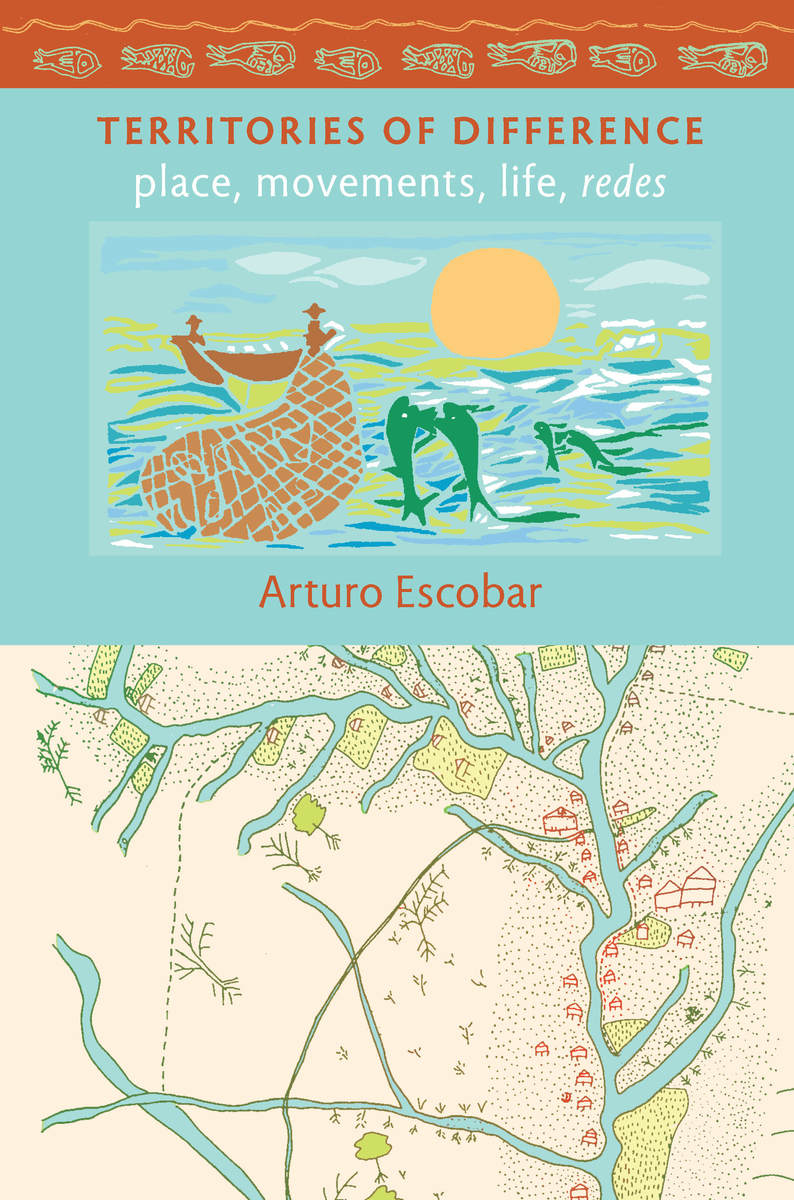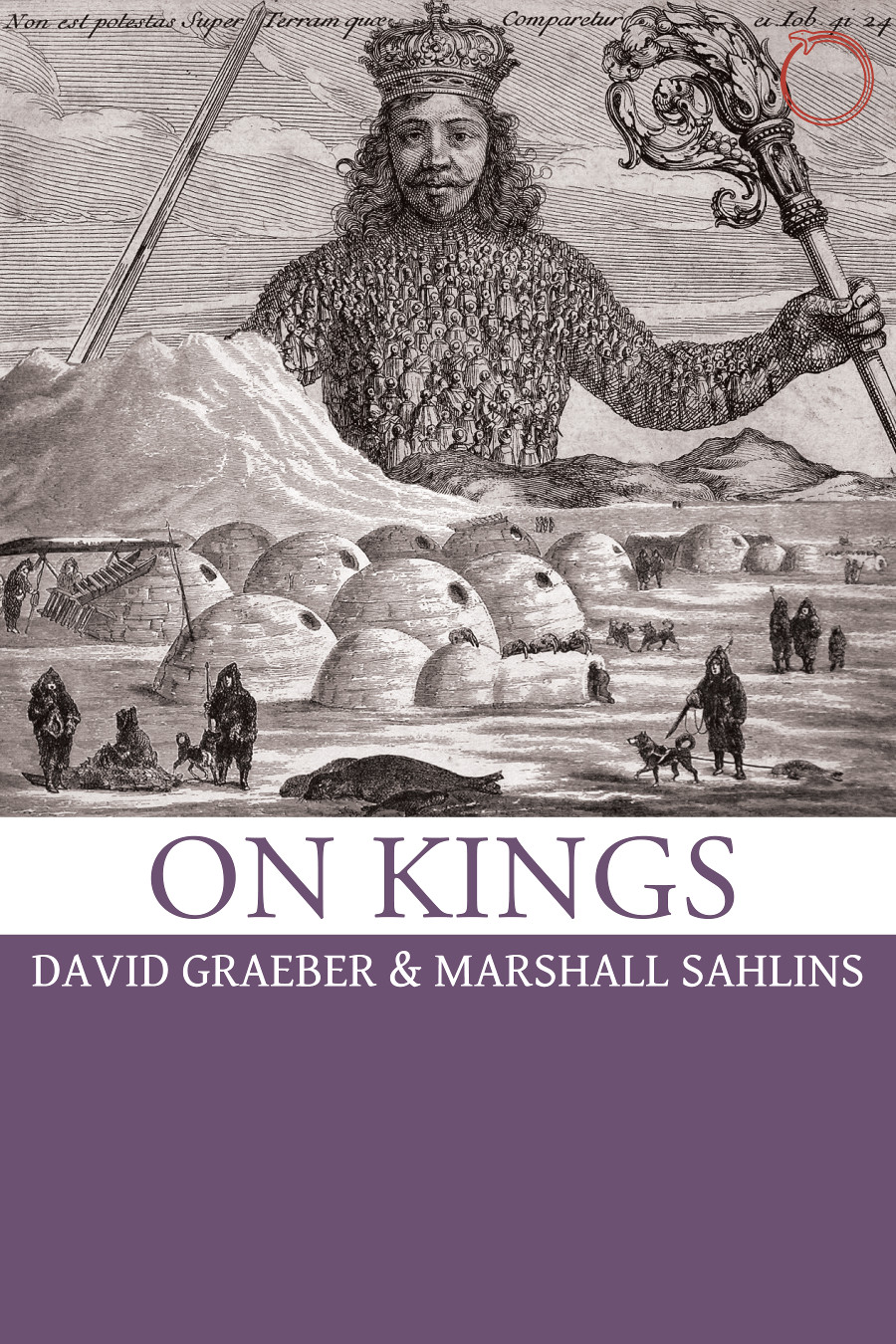Arturo Escobar: Territories of Difference: Place, Movements, Life, Redes (2008)
Filed under book | Tags: · anthropology, assemblage, biodiversity, black people, complexity theory, decoloniality, epistemology, ethnography, governance, indigenous peoples, modernity, nature, politics, self-organization, social movements, state, territory

“In Territories of Difference, Arturo Escobar, author of the widely debated book Encountering Development, analyzes the politics of difference enacted by specific place-based ethnic and environmental movements in the context of neoliberal globalization. His analysis is based on his many years of engagement with a group of Afro-Colombian activists of Colombia’s Pacific rainforest region, the Proceso de Comunidades Negras (PCN). Escobar offers a detailed ethnographic account of PCN’s visions, strategies, and practices, and he chronicles and analyzes the movement’s struggles for autonomy, territory, justice, and cultural recognition. Yet he also does much more. Consistently emphasizing the value of local activist knowledge for both understanding and social action and drawing on multiple strands of critical scholarship, Escobar proposes new ways for scholars and activists to examine and apprehend the momentous, complex processes engulfing regions such as the Colombian Pacific today.
Escobar illuminates many interrelated dynamics, including the Colombian government’s policies of development and pluralism that created conditions for the emergence of black and indigenous social movements and those movements’ efforts to steer the region in particular directions. He examines attempts by capitalists to appropriate the rainforest and extract resources, by developers to set the region on the path of modernist progress, and by biologists and others to defend this incredibly rich biodiversity “hot-spot” from the most predatory activities of capitalists and developers. He also looks at the attempts of academics, activists, and intellectuals to understand all of these complicated processes. Territories of Difference is Escobar’s effort to think with Afro-Colombian intellectual-activists who aim to move beyond the limits of Eurocentric paradigms as they confront the ravages of neoliberal globalization and seek to defend their place-based cultures and territories.”
Publisher Duke University Press, 2008
New Ecologies for the Twenty-first Century series, 1
ISBN 9780822343271, 0822343274
xvi+435 pages
Reviews: Laura Fano Morrissey (Development, 2009), Christopher L. Chiappari (Latin American Politics & Society, 2010), Pierre Hamel (American Journal of Sociology, 2010), Lilly U. Nguyen (Interactions, 2010), Rodrigo A. Lima de Medeiros & Guilherme F. W. Radomsky (Sociedade e Estado, 2010, BR-PT), Manuel J. Prieto (Revista de geografía Norte Grande, 2010, ES), Jeffrey S. Juris (American Anthropologist, 2011), Cornelia Butler Flora (J Agric Environ Ethics, 2011), Claudia Steiner (Americas, 2011), Paul Routledge, Juanita Sundberg, Marcus Power, & Arturo Escobar (Progress in Human Geography, 2012).
PDF (5 MB)
Comment (0)David Graeber, Marshall Sahlins: On Kings (2017)
Filed under book | Tags: · anthropology, authority, kinship, labour, myth, politics, production, ritual, royalty, sovereignty, state, violence

“In anthropology as much as in popular imagination, kings are figures of fascination and intrigue, heroes or tyrants in ways presidents and prime ministers can never be. This collection of essays by two of the world’s most distinguished anthropologists—David Graeber and Marshall Sahlins—explores what kingship actually is, historically and anthropologically. As they show, kings are symbols for more than just sovereignty: indeed, the study of kingship offers a unique window into fundamental dilemmas concerning the very nature of power, meaning, and the human condition.
Reflecting on issues such as temporality, alterity, and utopia—not to mention the divine, the strange, the numinous, and the bestial—Graeber and Sahlins explore the role of kings as they have existed around the world, from the BaKongo to the Aztec to the Shilluk and beyond. Richly delivered with the wit and sharp analysis characteristic of Graeber and Sahlins, this book opens up new avenues for the anthropological study of this fascinating and ubiquitous political figure.”
Publisher HAU Books, Chicago, 2017
Creative Commons BY License
ISBN 0986132500, 9780986132506
xv+536 pages
continent. 4.3: Intangible Architectures (2015)
Filed under journal | Tags: · architecture, community, language, resistance, space, state

“This issue of continent. deals with the theme of intangible architectures. While in keeping with the theoretical and experimental nature of previous issues, this release intends a balance with an urgent grounding in current events, political schemas and areas of research that demand broadened dialogue. An underlying conversation represents some response to the tension that is enabled through systems that shape experience, behaviour and meaning – examining the imprints and traces that are left on our beings by these forms.
In some cases, this tension is manifest as social violence, where political and economic conditions are inseparable from the cultural expression of these structures. The idea of intangible architectures as political agents may relate to emergency states, militarised environments, questions of statehood and national borders, and the patterns of self-determining communities (Paul Boshears, Charles Stankievech, Ethel Baraona Pohl, César Reyes Nájera, Léopold Lambert). Architectures that are not yet constructed, and the rhetoric used to justify or oppose such development, are also revealing of the philosophy of private developers and communities of resistance (Lital Khaikin, Nathan Medema).
We may then find, after encountering these most immediate forms of intangible architectures, the spatial manipulations of social and intimate behaviour, laws, experiences, and memories. Architectural structures that do exist may yet conceal more complex frameworks, which exude laws that are autonomous to their initial, intended use. These subtle systems are encountered in liminal and transitory zones of city space, in artist-run exhibition spaces, in the homes that we recreate in our memories, in the emotional symbolism we create from structural space (Paolo Patelli, Giuditta Vendrame, Simone Ferracina, Sophie-Carolin Wagner, Tiara Roxanne).
But then, may we go deeper to find traces, mirrors of these intangible architectures, within language and more abstract experience of atmosphere? Do the systems by which we begin a construction of our understanding of the world – from phonemes to the cartographies that are charted in sonic atmosphere – not also shape our behaviours and relationships to space? (Kaie Kellough, Jason Sharp, Orit Halpern) In all cases, we are asked to consider the manifestations of structures that determine our experiences, interpretations and relationships to space. Let these be public or intimate – they engage the imagination equally, challenging us to think about the way these imprints affect our shared presence and relation to all beings.” (from Editorial)
Edited by Lital Khaikin, Paul Boshears, Jamie Allen, and Matt Bernico
Publisher continent., September 2015
Creative Commons Attribution 3.0 License
ISSN 2159-9920

